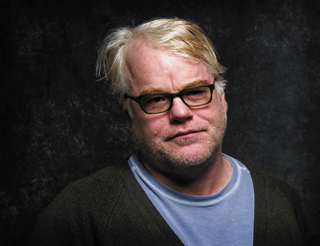We Live Only When We Love
For Sunday September 7, 2014
Lectionary Readings (Revised Common Lectionary, Year A)
Exodus 12:1–14 or Ezekiel 33:7–11
Psalm 149 or Psalm 119:33–40
Romans 13:8–14
Matthew 18:15–20
Last month, about an hour north of my home, the actor Robin Williams hanged himself at the age of sixty-three. Just six months earlier, Philip Seymour Hoffman died of a drug overdose at the age of forty-six.
Both of these men had reached the pinnacle of professional success. Both were worth many millions of dollars. But they both also struggled with addiction and depression.
I wonder if their medical disease was aggravated by some spiritual poverty. "The biggest disease today," Mother Teresa once said, is more spiritual than physical.
It's not "leprosy or tuberculosis," she observed, "but rather the feeling of being unwanted, uncared for, and deserted by everybody. The greatest evil is the lack of love and charity, the terrible indifference toward one’s neighbor who lives at the roadside assaulted by exploitation, corruption, poverty and disease."
Medical sickness is bad enough. The lack of love is a darkness that leads to death. Life without love is impossible.
The suicides of Williams and Hoffman reminded me of the song Where is the Love? by the hip hop group The Black Eyed Peas:
People killin', people dyin'
Children hurt and you hear them cryin'
Can you practise what you preach?
Or would you turn the other cheek?
Father, Father, Father help us
Send some guidance from above
'Cause people got me, got me questionin'
Where is the love (Love).
When Christians are on their game, when we keep the main thing the main thing, we meet the world's "biggest disease" with what Tertullian called our "distinctive sign."
According to Jewish rabbinic tradition, there are 613 commandments in the Torah. Jesus, Paul, James and John all say that we fulfill the entire law when we love our neighbor.
 |
Robin Williams. |
The epistle this week is one of six texts that links our claim to love God with proof that we love our neighbor.
Paul writes: "Let no debt remain outstanding, except the continuing debt to love one another, for he who loves his neighbor has fulfilled the law." The entire Old Testament law, says Paul, "may be summed up in this one rule: 'Love your neighbor as yourself.'"
Writing to the Galatians, he said, "The only thing that counts is faith expressing itself in love. The entire law is summed up in a single command: 'Love your neighbor as yourself.'"
James 2:8 repeats this message almost verbatim: "If you really keep the royal law found in Scripture, 'Love your neighbor as yourself,' you are doing right."
And then there's John: "If anyone says, 'I love God,' yet hates his brother, he is a liar. For anyone who does not love his brother, whom he has seen, cannot love God, whom he has not seen. And he has given us this command: Whoever loves God must also love his brother" (1 John 4:20–21).
Loving your neighbor, Jesus said, is the greatest commandment. In his last words to his disciples, Jesus called this a new commandment. "Love one another. As I have loved you, so you must love one another. All people will know that you are my disciples if you love one another." God's redemption of the world is mediated through the love of his people.
It's not obvious in what sense Jesus's commandment is "new." It's an ancient commandment that goes back 3000 years to the founding of the Hebrew community: "Love your neighbor as yourself," says Leviticus 19:18.
Love, said Paul in 1 Corinthians 13, is the greatest gift, without which I'm just whistling in the dark.
Just as this ancient commandment was repeated throughout the New Testament, it was repeated in the centuries after the first believers. "Our care for the derelict and our active love," writes the African Roman Tertullian, "have become our distinctive sign… See, they say, how they love one another and how ready they are to die for each other."
"Blessed is the one who can love all people equally," said Maximos the Confessor, "always thinking good of everyone."
In his commentary on Galatians 6:10, the church father Jerome describes how John the evangelist, author of the gospel and book of Revelation, preached at Ephesus into his nineties. Christian tradition holds that he died in about the year 100 CE.
At that age, John was so feeble that he had to be carried into the church at Ephesus on a stretcher. Then, when he could no longer preach a normal sermon, he would lean up on one elbow. The only thing he said was, “Little children, love one another.” People would then carry him back out of the church.
This continued for weeks, says Jerome. And every week he repeated his one-sentence sermon: “Little children, love one another.”
Weary of the repetition, the congregation finally asked, "Master, why do you always say this?"
 |
Philip Seymour Hoffman. |
"Because," John replied, "it is the Lord's command, and if this only is done, it is enough."
As the chaplain at Yale University, William Sloan Coffin (1924–2006), pushed back against intellectual idolatry. He observed how students at Yale “thought cogito ergo sum (I think, therefore I am) was what it was all about, and Yale was encouraging them to think that." Coffin suggested a subversive counter-proposal: "I felt very deeply that it’s amo ergo sum (I love, therefore I am).”
This Latin phrase, which is the title of a 2002 book by the German Christina Kessler, can be translated slightly differently to make the point more radical: "I am because I love." Or as Wendell Berry put it, I only live to the extent that I love.
In his book of poetry called Leavings (2012), Berry points the way for us in a short poem-prayer:
"I know that I have life
only insofar as I have love.I have no love
except it come from Thee.Help me, please, to carry
this candle against the wind."
Image credits: (1) www.danablankenhorn.com; and (2) Trbimg.com.





